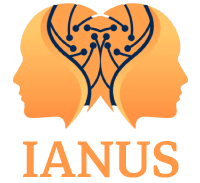An important explanation for a lack of trust in science and technology is that science is perceived to be out of touch with societal concerns and needs, and this is especially true for underserved audiences.
The core objective of the IANUS project is to strengthen trust in science, research and innovation. But what does it mean? It is not quite clear what is meant by trust in science, i.e., what is the object of trust. Is it trust in individual researchers? Research institutions? Products of science? This question is very multifaceted and we have come to realize that trust in science involves various trust relationships. We can trust or distrust individuals (micro-level), but also institutions conducting research or designing and manufacturing new technologies (meso-level) and policy mechanisms for governing science (macro-level).
Similarly, societal trust in science is also complex and multifaceted and it is intricately linked to various factors, encompassing the coherence of scientific consensus, the assigned role of science by government and policymakers, the extent of media reports on preliminary research, and the potential compromise of scientific objectivity through industry funding and conflicted interests.
Eurobarometer surveys from 2021 (https://europa.eu/eurobarometer/surveys/detail/2237) for example, addressed European citizens’ knowledge and attitudes towards science and technology and unveiled conflicting positions. They suggested that EU citizens exhibit a high level of interest in science and technology (82%) and believe that their overall influence is positive (86%). Still, there is also a pervasive skepticism, with approximately half of EU citizens (57%) believing that Research & Innovation is accompanied by challenges, such as the belief that science and technology are mostly improving the lives of those who are already better off.
Against this backdrop and through collaboration among the different Working Groups in IANUS, our partners are focusing on understanding how we can make science align with societal concerns and needs by showcasing best practises and providing recommendations at three levels: the macro-level (of governmental organizations and funding bodies), the meso-level (of universities as Higher Education Institutions and other Research Performing Organizations), and the micro-level (of research teams, educators, media and other stakeholders).
We will cross-reference data on areas of societal concern from IANUS’ findings (e.g. findings from social labs, co-creation workshops, historical case-studies, and literature reviews) and previous EU-projects, analyze trends and external outputs during the project’s co-creation phase, and, ultimately, elaborate policy recommendations from data-driven knowledge.
This will ensure that the insights, knowledge, and concepts generated in the IANUS project are turned into accessible and effective recommendations for the future governance of science, technology and innovation (STI) and for the design of STI policy. The ultimate goal is also to support other projects’ open science efforts, as well as informing the IANUS consortium’s open science activities.
